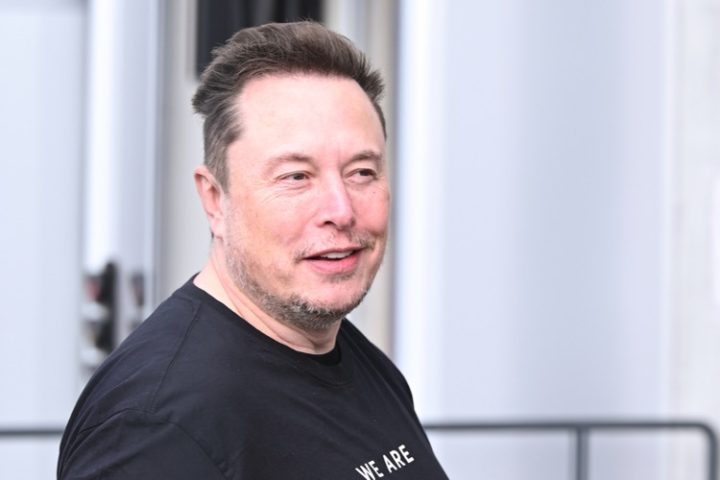
On March 30, Tesla and SpaceX CEO Elon Musk declared in a post on X that Russia will gain more territory the longer the Russia-Ukraine conflict drags on, warning that a protracted conflict will lead to the fall of Odessa as well.
“The longer the war goes on, the more territory Russia will gain until they hit the Dnepr, which is tough to overcome,” Musk wrote.
“However, if the war lasts long enough, Odessa will fall too.”
Moreover, the prominent entrepreneur lamented that it was a “tragic waste of life” for Ukraine, militarily inferior to Russia, to attack the larger Russian army that had defense in depth, minefields, and stronger artillery.
“Any fool could have predicted that,” he posited.
“Whether Ukraine loses all access to the Black Sea or not is, in my view, the real remaining question. I recommend a negotiated settlement before that happens,” Musk said.
This is not the first time Musk has made contrarian statements regarding the Russia-Ukraine conflict.
Formerly, Musk called on the United States to stop giving weapons to Ukraine, raising doubts about the possibility of Moscow’s defeat.
Additionally, Musk has altered his position on Ukraine several times since the conflict began in early 2022. He initially supplied Kyiv with free Starlink internet terminals and access to the satellite-based network, but declined to activate the service near Crimea lest Ukraine would use it to conduct drone attacks on Russia’s Black Sea fleet.
If this had happened, Musk explained last year, SpaceX would have been “complicit in a major act of war and conflict escalation.”
On March 26, Musk stated on X that “funding [for Ukraine] should be contingent on proper accounting of how it is used and a plan to resolve the conflict,” also noting that he is “not calling for an immediate end to all funding to Ukraine.”
In mid-March, Musk contended that Washington’s attempts to weaken Russia have “come true in reverse” and have in reality only made it stronger.
More than a year ago, Musk proposed that Kyiv relinquish its claim to Crimea, declare neutrality, and permit the four new Russian regions (Donetsk, Lugansk, Kherson, and Zaporozhye) to hold a new referendum on joining the Russian Federation. His suggestion was similar to Russia’s proposals to Kyiv and the latter’s Western backers before the conflict began, except Moscow initially called only for autonomy in Donetsk and Lugansk.
According to recent estimates from the Russian Defense Ministry, the Ukrainian army has witnessed more than 470,000 casualties during the course of the ongoing conflict, including more than 166,000 during last year’s counteroffensive,
However, Ukrainian leader Volodymyr Zelensky claimed in February that only 31,000 of his country’s troops had been killed since February 24, 2022.
Meanwhile, the United States and France, two major NATO members, have disagreed in their stances regarding Ukraine’s drone strikes that are increasingly striking facilities deep inside Russia.
During a press conference in Paris on April 2, U.S. Secretary of State Antony Blinken and French Foreign Minister Stephane Sejourne responded differently to a question about the developments.
Notably, Ukraine conducted drone strikes against several Russian oil facilities in March, attempting to “deliver a symbolic blow by bringing the war closer to Moscow” and obstruct the flow of fuel to the military on the front lines. Ukrainian attacks persisted in April, with the most recent one hitting various industrial facilities in the Elabuga and Nizhnekamsk cities in Russia’s Tatarstan region earlier on April 2.
Blinken attempted to distance himself from the situation by saying that the United States had “neither supported nor enabled strikes by Ukraine outside of its territory.” Sejourne, nonetheless, seemed to support any move Kyiv made, arguing that Ukraine was merely defending itself.
“The Ukrainian people are acting in self-defense, and we consider Russia the aggressor, and, under such circumstances, there is hardly anything else to say,” he told journalists, adding that he had no specific comments on the drone strikes.
In particular, Zelensky in late March acknowledged that Washington had sought to stop his forces from targeting Russian oil refineries with drones. “The reaction of the US was not positive on this,” the Ukrainian leader said at that time, maintaining, nevertheless, that the United States was unable to stop the attacks.
To boot, the Financial Times news outlet reported in March that the White House was worried that Ukrainian attacks on Russian infrastructure would push up gas prices, potentially undermining President Biden’s reelection bid.
In turn, the secretary of the Russian Security Council, Nikolay Patrushev, posited in an interview published on April 2 that NATO is hoping to retain control over Ukraine and transform it into an “anti-Russian” proxy by controlling Ukrainian arms supplies and planning attacks on Russia.
Washington and its allies have been actively militarizing Ukraine ever since the 2014 Maidan coup in Kyiv, the Russian official claimed. NATO now seeks to “keep Ukraine or at least a part of it, as a fully controlled anti-Russian territory,” he added.
The bloc’s instructors also “train mercenaries and sabotage units on several nations’ territories to be used in anti-Russian operations,” Patrushev told the paper. Given such a situation, the Kremlin’s goal of bringing about Ukraine’s “demilitarization” remains a key goal, the Russian official declared.
Inciting Russophobia and promoting narratives about the so-called “Russian threat” have also turned into a “major policy” for the West, Patrushev said, maintaining that such tactics permit the United States and its allies to distract voters from internal economic issues.
“The US is gaining profits through … dictating very specific arms purchasing conditions to its allies,” the official continued, adding that those arms are then produced by American manufacturers, and such contracts can become economic liabilities for other NATO members.



